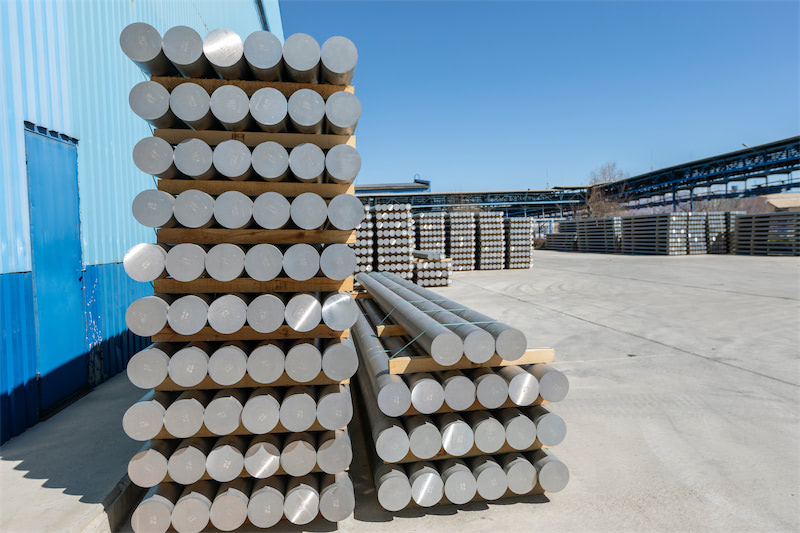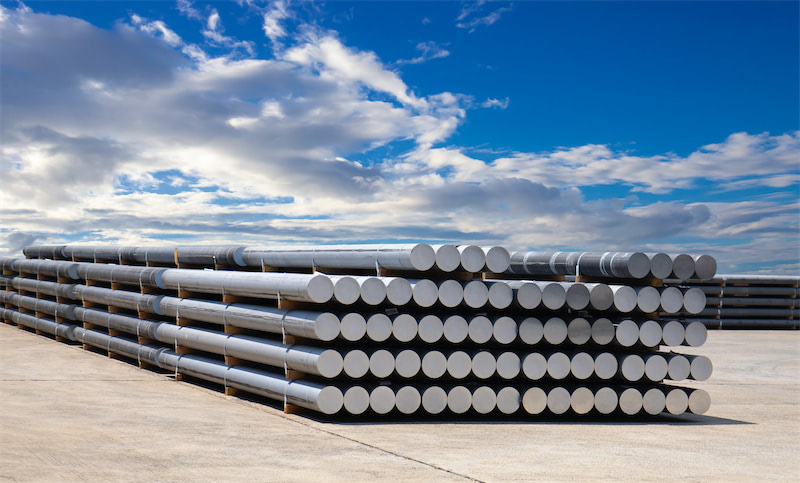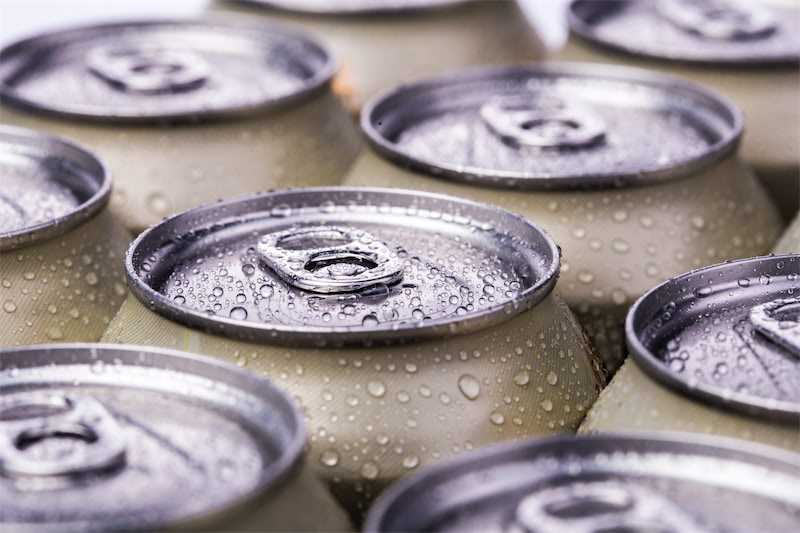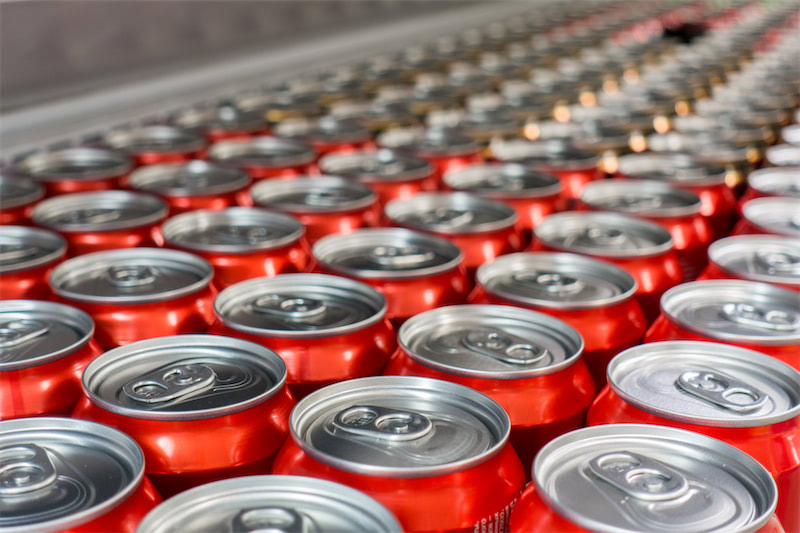Recently, in accordance with the requirements of the Notice on Standardizing Policies for Investment Attraction and Implementation issued jointly by the National Development and Reform Commission (NDRC) and three other ministries (Document No. [2025]770 of the NDRC), localities are actively implementing relevant work deployments, focusing on rectifying the issue of irregular tax rebates by local governments.
For the schedule of the cleanup, the following arrangements are made:
· Deadline for cleanup: For existing policies that violate regulations, the requirement is to complete the cleanup and abolition by the end of August 2025.
· Immediate termination of execution: For existing projects under contracts signed before the end of May 2024, any clauses involving non-compliant rebates or exemptions must be immediately terminated.
· Transition period setup: For existing projects involving non-compliant behaviors such as the use of fiscal funds for factory construction and equipment purchases, if there is no policy basis, a necessary transition period can be set considering factors like project scale, to gradually adjust and phase out, not extending beyond the end of August 2027.
This policy trend will profoundly impact the secondary aluminum industry. As an industry sensitive to policy changes, previous reliance on local tax rebates and other preferential policies will face adjustments, thereby driving the reshaping of corporate cost structures, regional layouts, and market competition patterns, among other aspects.
After the release of the policy news and its market response, SMM communicated with multiple secondary aluminum plants to gather specific feedback.
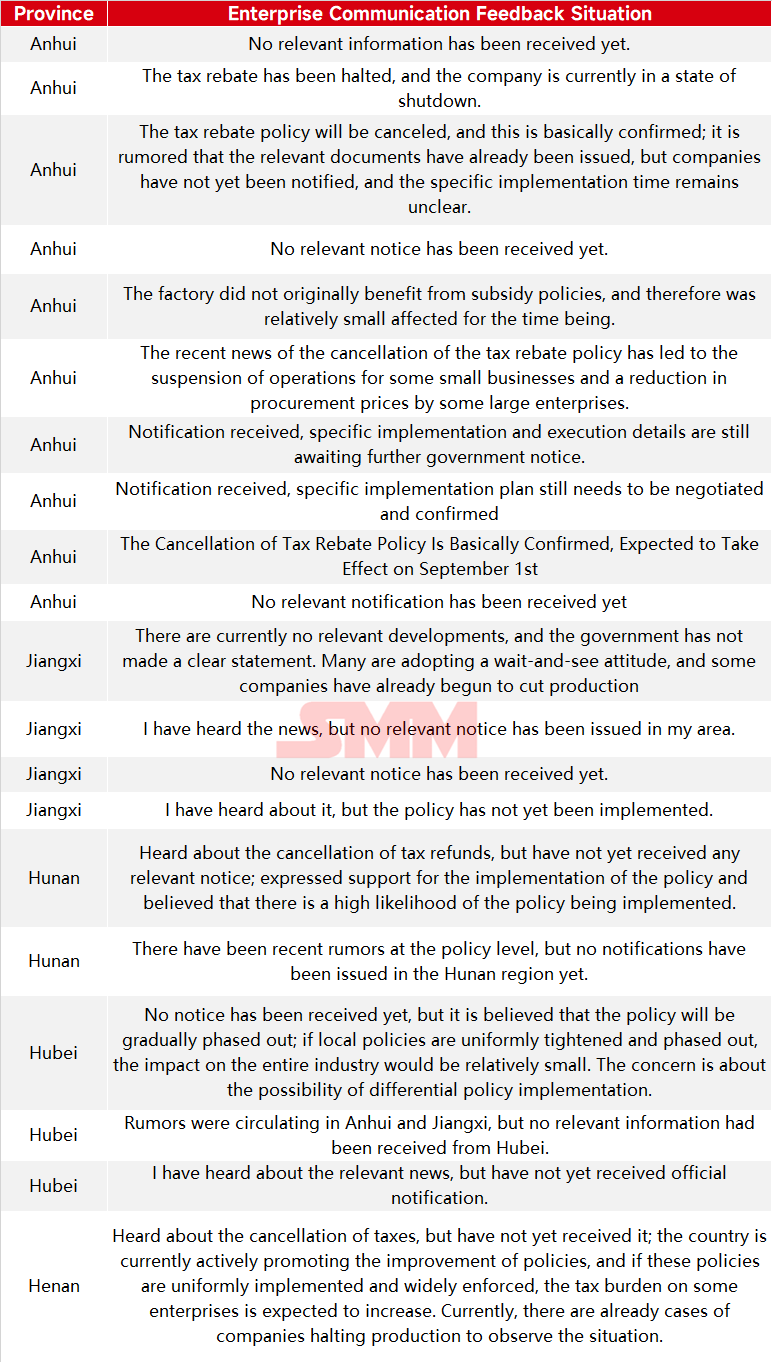
It is reported that news of the current policy adjustments has been widely disseminated, but there are differences in implementation across regions. In terms of regional impact, Anhui and Jiangxi provinces have been notably affected by the policy, with some secondary aluminum enterprises already receiving notices of the termination of tax rebates. Some companies have suspended tax refunds or plan to do so starting from September 1, 2025, leading to production halts, suspension of shipments, or reductions in raw material procurement prices. However, many enterprises in these two provinces remain in a wait-and-see mode as local governments have not yet made clear statements or issued formal notices. Some companies, in anticipation, have taken measures such as cutting production or halting operations, while those not benefiting from subsidies have been less affected. Overall, the initial impact of the policy changes is evident, with Anhui region showing a particularly strong reaction, but the actual impact remains limited to specific areas and has not yet become a nationwide trend. Nevertheless, this change has triggered a chain reaction in the industry: the purchasing price of aluminum scrap is under pressure, while the price of finished alloy ingots is supported, showing a firm trend; however, due to the current off-season for demand, the downward transmission of prices is relatively limited.
According to market feedback, the probability of implementing this policy adjustment is high, but the actual effects remain to be observed. The cancellation of local tax rebates is an extension and detailed implementation of the Fair Competition Review Regulations issued by the State Council in June 2024 to build a unified national market. This will help standardize market competition and promote high-quality economic development. For the secondary aluminum industry, companies that have long relied on subsidies and survived on tax rebates will face the risk of elimination. In the short term, this will lead to increased tax costs, exacerbating operational pressures and pushing up market selling prices. In the long term, it will promote healthy competition and increase industry concentration. Overall, the withdrawal of the tax rebate policy will help the secondary aluminum industry return to market dominance, but it may also trigger capacity exits or shifts during the transition. Attention should be paid to the resilience of enterprises and the stability of the industry, and local governments need to negotiate with enterprises to clarify the implementation details to reduce uncertainties in policy execution.
